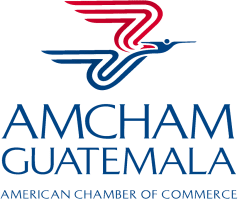In Central America, Panama and the Dominican Republic, current laws against asset laundering and other related crimes define measures which, according to the level of risk, must be implemented by natural or legal persons who engage in non-designated financial activities and professions to prevent their use or their direct participation in the asset laundering crime.
To that end, said laws impose on companies, legal firms and professionals like lawyers and notaries, among others, the obligation to report certain transactions and carry out due diligence of current and potential customers.
Penalties for non-compliance with the aforementioned laws include fines and imprisonment of four to twenty years depending on the type of participation of the natural or legal person in the crime or crimes persecuted, for example, for having participated, having acquired, being an accomplice and/or having provided advice.
Until the enactment of the laws on the prevention of money laundering and other related crimes, these measures to prevent money laundering fell solely on the banks. However, as it is not only banks that handle money, it became necessary to also control transactions made by companies, legal and professional firms such as lawyers and notaries, and demand that they take measures to know their customers, contractors and suppliers and have the backing of all the necessary information.
Laws against money laundering and other related crimes are some of the norms that every company, including legal firms, must comply with.
To better control compliance, it is advisable that all related rules be included in a Compliance Program. This program, to be fulfilled by all the members of the organization, has to be created by a team with expertise in the subject and with as many resources as possible.
In this sense, a Regulatory Compliance Program must contain not only the internal rules of the company or law firm, such as regulations, trademark manuals, and code of ethics, but also external regulations that, depending on its activity, industry or sector, or the jurisdiction where it is located, must comply with together with the rules that the stakeholders, whether private and/or public, with which they do business, require from them.
It is important that, inv view of the number of standards that the Compliance Program may include, it design the necessary procedures that ensure their compliance, and which is supervised, updated, and which lists who is responsible for their monitoring.
The importance of the design of a Regulatory Compliance Program lies in clearly establishing the action policies that will be necessary to comply with all the internal and external regulations of the company and, at the same time, to detect the risks due to non-compliance and mitigation. Failure to comply with these rules could result in millions in losses for companies, and both the law firms and independent professionals must be up to date with new legislation, its regulations and its enforcement, to be able to provide internal and external advice based on them.
The legislation and the current global trend in Compliance shows a way forward and leads to awareness that compliance, with all internal and external regulations by companies, law firms, professionals such as lawyers and notaries, among others, not only gives these orders, but also provides greater security and transparency when doing business in the region.
Guadalupe Martínez Casas – Director of Law Services
CENTRAL LAW – Central America, Panama and the Dominican Republic






